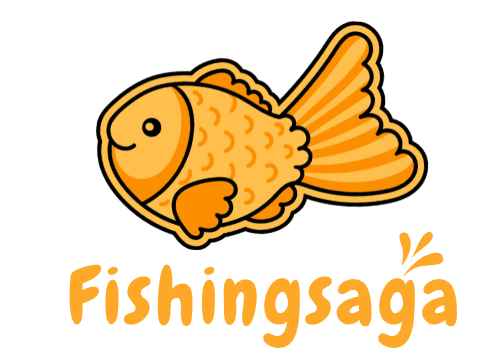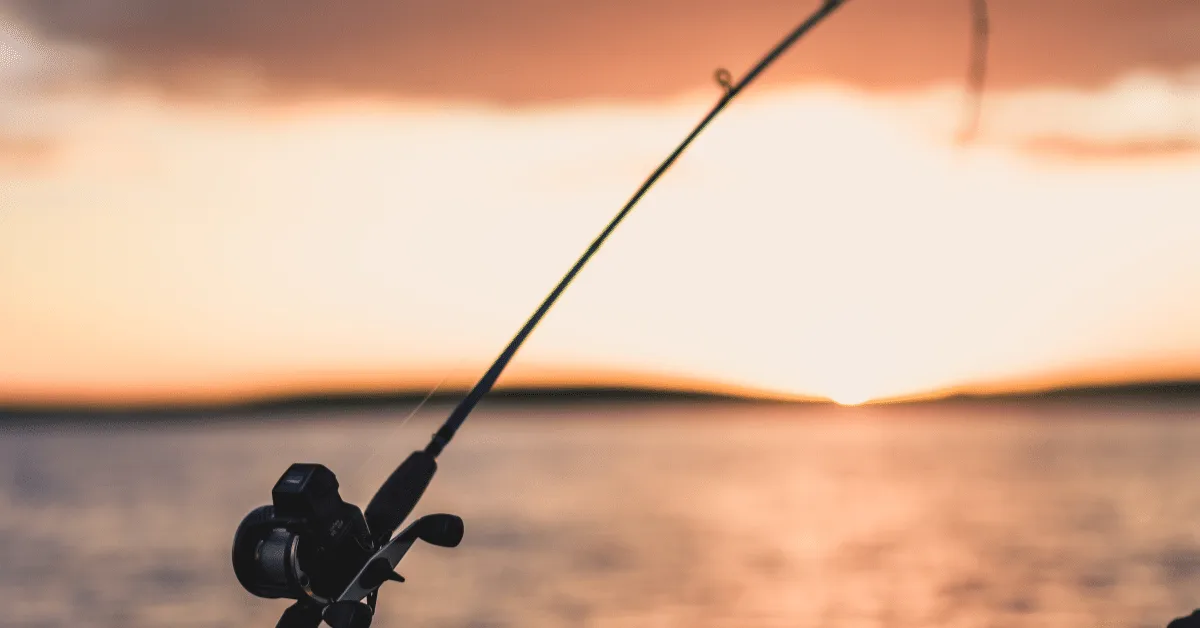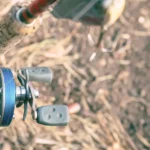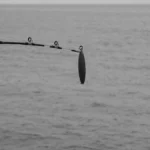Are 1-piece or 2-piece fishing rods better? For years, anglers have argued about this same subject. Whether you go with a one-piece or two-piece fishing rod significantly influences how enjoyable your fishing trip is. Don’t worry; we’ll help you sort out this age-old problem and arrive at a well-informed conclusion. So, Are 1 Piece Or 2 Piece Fishing Rods Better? Let’s dive in and find out!
Advantages of 1 Piece Rods
- Sensitivity: One of the main benefits of one-piece rods is the high level of sensitivity they provide. The motion of the rod is uniform over its entire length since there are no connections or joints, enabling fishermen to detect even the smallest of nibbles and movements under the water’s surface.
- Seamless Action: Because there are no joints, the motion of 1-piece rods is more fluid and realistic. This streamlined construction improves power transmission, giving fishermen more command over their casts.
- Enhanced Strength: One-piece rods are often more robust and long-lasting than multi-piece rods due to the absence of ferrules and connections. This increased durability is excellent for catching bigger fish or fishing in harsh environments.
- Improved Casting Distance: One-piece rods have an advantage in casting because of their homogeneous elasticity and seamless construction. Casting farther is more effortless, enabling anglers to access more remote fishing spots.
- More fantastic Sensation: One-piece rods are popular among anglers because they allow for more immediate interaction between the fisherman and the quarry. There won’t be any dead patches in your fishing experience because of the absence of joints.
- Simplified Maintenance: One-piece rods are less of a maintenance hassle since there are fewer potential points of failure. Fewer moving components mean more irregular possible loss or harm points.
- Aesthetics: The simplicity and reliability of a one-piece rod make it popular among experienced anglers. Many anglers are attracted to its classic and refined appearance, which comes from its seamless construction.
Disadvantages of 1-Piece Rods
There are sure fishermen whose tastes and fishing techniques are altered by the drawbacks of 1 piece fishing rods.
- Transport and Storage: The inability to easily transport a one-piece rod is a significant downside. Because of their length, they are challenging to move in compact cars or on airlines. They are bulkier than foldable rods and might be a pain to store.
- Travel Limitations: If you need to trek to isolated fishing sites or access regions with limited space, a one-piece rod may prevent you.
- Shipping Costs: Because of their length, one-piece fishing rods might incur more significant shipping expenses for online shoppers.
- Vulnerability to Damage: Because of their length, one-piece rods are more vulnerable to being broken or damaged in transit if they are not correctly secured or packaged.
- Inconvenience for Air Travel: One-piece rods may need to be more convenient to pack and may result in overweight baggage costs while flying.
- Limited Customization: One-piece rods may limit your customization possibilities compared to two-piece or more complex rod designs with interchangeable blanks and grips.
Advantages of 2-Piece Rods
Two-piece rods provide several benefits that are sure to please anglers of all stripes, no matter what they’re fishing for or how they like to fish:
- Portability: The portability of 2-piece rods is a significant advantage. The rod can be separated into halves, making it easier to handle and store in small spaces like cars, backpacks, and suitcases.
- Travel-Friendly: Two-piece rods are the best option for fishermen who often change fishing spots or like exploring new places. You can quickly bring them on an airplane or take them on a backpacking fishing trip because of how little they are.
- Versatility: Two-piece rods may be used for various fishing techniques. These rods are well-suited for multiple fishing applications, including casting from shore, fishing from a boat, and fishing for various species.
- Backup Option: Fishermen often carry two-piece rods as a safety net. A backup rod means you won’t lose out on a fishing opportunity due to unforeseen circumstances or broken gear.
- Affordability: Two-piece rods are often less expensive than one-piece rods. It makes them an excellent choice for cost-conscious fishermen unwilling to sacrifice quality.
- Ease of Repair: Repairing or replacing only the broken part of a two-piece rod is often simpler and less expensive than repairing or replacing the whole rod.
- Customization Options: Some two-piece rods enable the angler to swap the handle or the tip, making it possible to tailor the rod to their needs.
Disadvantages of 2-Piece Rods
Some fishermen may be put off by the following drawbacks of 2-piece fishing rods, although they do have their benefits:
- Sensitivity Loss: A 2-piece rod’s connecting point may be less sensitive than a one-piece rod’s connection point. It may be more challenging to perceive outstanding motions or very few bites due to the joint’s ability to attenuate input.
- Complexity of Assembly: Two-piece rods need more time and effort to assemble and disassemble than one-piece rods. Aligning the pieces and ensuring they fit snugly is time-consuming if you often need to move back and forth between transport and fishing mode.
- Potential Weak Point: If the rod is not handled carefully or is subjected to rough handling during transport or storage, the junction between the two parts is especially susceptible to damage or break.
- Aesthetic Disruption: The joint on the rod’s blank may be visually offensive to certain fishers. The break in the rod’s otherwise flawless form may put some people off.
- Limited Casting Performance: While this is less of a concern now because of technological breakthroughs in rod design, specific 2-piece rods may still have less casting performance than their 1-piece counterparts. The movement and loading capacity of the rod may be altered by the joint, which in turn may influence casting range and precision.
- Reduced Durability: Two-piece rods are typically strong but include an extra connecting point that might break or get damaged. However, this threat may be reduced with careful treatment.
Two-Piece vs. Four-Piece Spinning Rod
The difference between a 2-piece and 4-piece spinning rod might be game-changing when catching fish. The versatility and efficiency of a 2-piece spinning rod is hard to beat. It comes in two halves that snap together quickly and easily, making it convenient for fishermen on the go. The classic sensation of one-piece rods is preserved by the seamless connection, which also assures smooth motion.
However, a 4-piece spinning rod is the ultimate in portability. It can be disassembled into four manageable parts, making it ideal for exploring new fishing places on the road. Because of its adaptability, it’s a hit among adventurous but practical fishermen.
Choosing the Right Rod for You
Whether you go with a one-piece or two-piece fishing rod relies on personal choice and fishing technique. To help you decide, think about the following details:
3.1. Fishing Location
A one-piece rod might be the best choice if you conduct most of your fishing in local waters and want maximum sensitivity and performance.
3.2. Travel and Storage
A two-piece rod’s mobility and compactness make it ideal for fishermen who are often on the go or have limited storage space.
3.3. Budget
A two-piece rod is less expensive and easier to use if you are starting out or on a restricted budget.
3.4. Target Species
The decision also depends on the kind of fish you want to capture. A one-piece rod may be better suitable for larger, more aggressive fish.
Are 1 Piece Or 2 Piece Fishing Rods Better? (FAQs)
Can I use a one-piece fishing rod for saltwater fishing?
Absolutely! A one-piece pole is your best bet when fishing in saltwater, particularly for bigger fish.
Are two-piece rods less durable than one-piece rods?
Modern manufacturing processes have significantly increased the strength and durability of two-piece rods, once less durable than one-piece rods.
Can I change the reel seat on a two-piece rod?
The reel seat on most two-piece rods is removable, so you may swap it out for one that fits your hand better.
Which rod is better for long-distance casting?
The seamless construction of a one-piece rod often results in greater casting accuracy and range.
Are two-piece rods suitable for fly fishing?
Fly fishing with a two-piece rod is possible; nevertheless, some fishermen prefer one-piece rods because of their increased sensitivity and responsiveness.
Are two-piece rods less expensive?
Since they are easier to make and require less materials, two-piece fishing rods are cheaper than one. Because of this, they are a cost-effective choice that doesn’t sacrifice functionality.
What is the best beginner rod?
A medium-power, medium-action spinning rod is ideal for novice anglers because of its flexibility and the relative simplicity with which it may be used.
When should an angler consider a two-piece rod?
A two-piece rod is perfect for travel or fishing in different areas since it can be broken down into smaller pieces and stored more easily.
Do fishing rods come apart?
Some fishing rods are even meant to be broken down into many sections for more convenient carrying and storage.
Conclusion
The answer to the question, Are one-piece or two-piece fishing rods better? It hinges on the angler’s tastes and fishing technique after considering the benefits and drawbacks of each. There are pros and downsides to each kind; issues like mobility, durability, and sensitivity should be considered. Consider your preferred method of fishing and the level of convenience you need before making a final choice. The ideal fishing rod is the one that improves your time spent fishing and makes you happy while you’re out there. Your answer to the question, Are one-piece or two-piece fishing rods better? It is solely in your hands.











